Clutha inquiry: Helicopter modifications 'could have prevented crash'
- Published
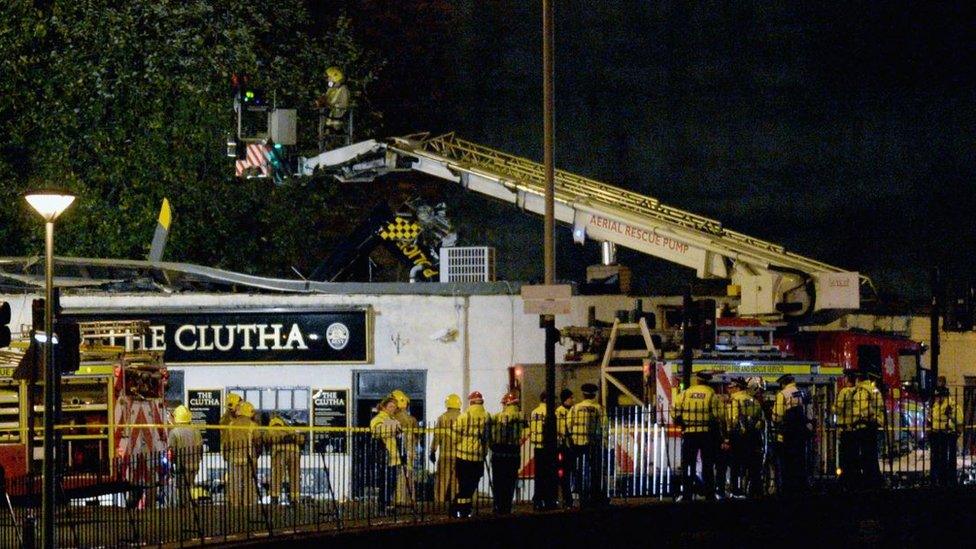
The accident happened on 29 November 2013
Modifications to a helicopter's fuel transfer pump could have prevented it from crashing and killing 10 people, an engineer has told an inquiry.
David Price was director of engineering at the aircraft's operators at the time of the crash at the Clutha Vaults pub in Glasgow on 29 November, 2013.
The fatal accident inquiry heard he believed a risk of human error over low fuel warnings could have been removed.
But he said it was not a "perfect solution".
Pilot David Traill died in the crash along with helicopter crew members Tony Collins and Kirsty Nelis and pub customers Mark O'Prey, Gary Arthur, John McGarrigle, Colin Gibson, Robert Jenkins, Samuel McGhee and Joe Cusker.
The court, which is sitting at Hampden Park, heard Mr Price worked for the helicopter's operator Bond Air Services, which is now owned by Babcock, and moved to become head of maintenance and engineering at Babcock in April 2014.
'Trigger power supply'
Peter Gray, representing Babock, asked Mr Price: "Do you have any thoughts from an engineering perspective how the risk of human error can be removed when red low fuel warnings come on?"
Mr Price replied he believed it was possible to "effectively wire or trigger a power supply" to automatically keep the forward transfer pump on after a low fuel warning.
Sheriff Principal Craig Turnbull asked if there was the possibility this would fail, to which Mr Price said: "I accept it could... it's not a perfect solution."
Mr Gray asked if it was better than what was in place at the moment.
Mr Price said: "Had it been in place for this accident, I suggest it would have prevented it."
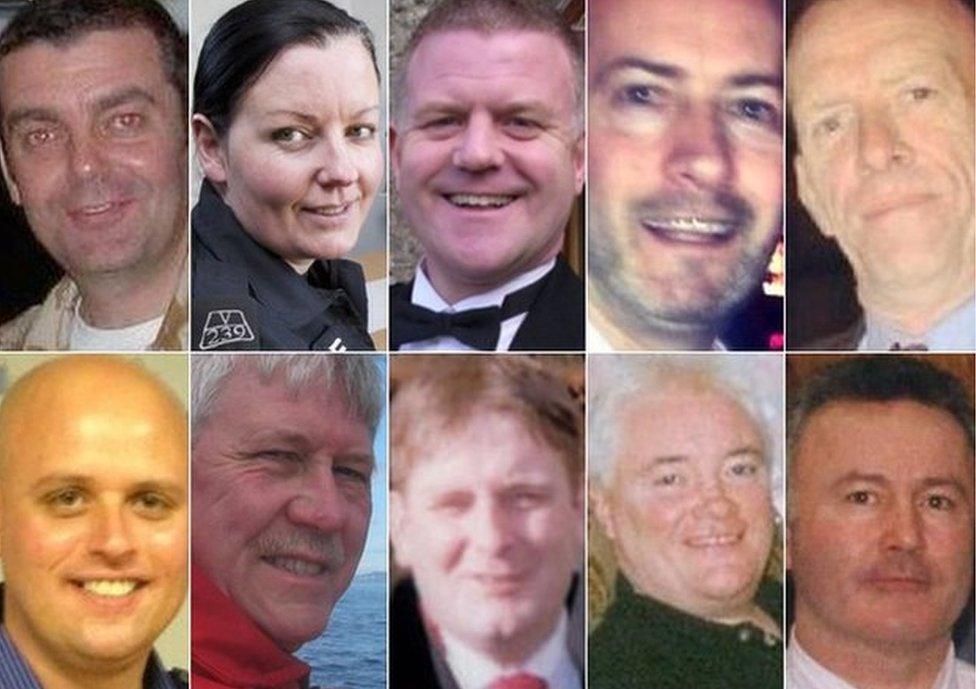
Top: L to R, David Traill, PC Kirsty Nelis, PC Tony Collins, Gary Arthur, Samuel McGhee. Bottom: L to R, Colin Gibson, Robert Jenkins, Mark O'Prey, John McGarrigle, Joe Cusker
Roddy Dunlop QC, representing manufacturers Airbus, further probed the engineer on the issue.
He said: "What if the pump was blocked? What if you need to turn the pumps off because in some situations turning them on is dangerous?
"If one had a situation where the pump was automatically on it would only create more problems, would it not?"
Mr Price said: "Not if it was protected."
When Mr Dunlop told him he was "advocating a system to this inquiry", Mr Price replied: "I'm not a human factors expert."
The inquiry, before Sheriff principal Craig Turnbull, continues.

Clutha inquiry: The evidence so far
- Published8 May 2019
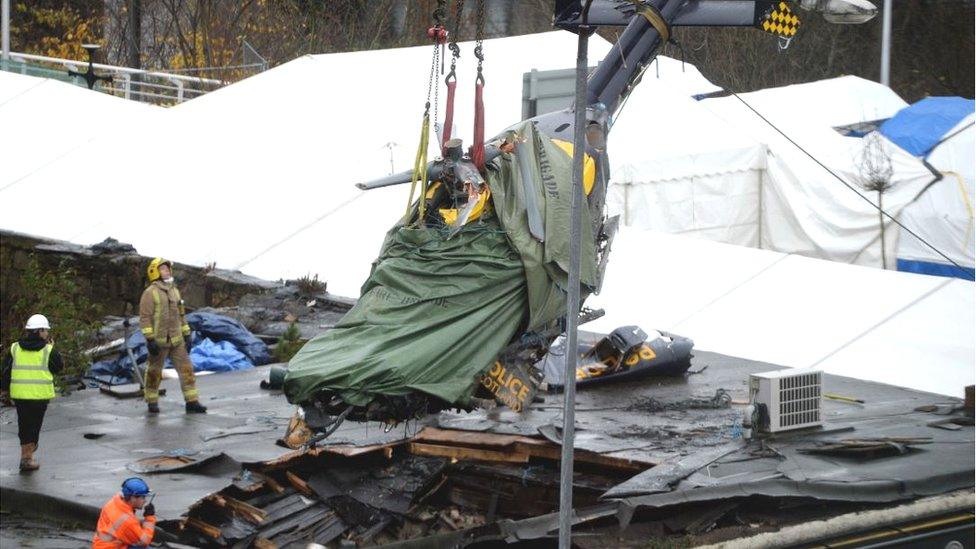
- Published7 May 2019

- Published2 May 2019

- Published1 May 2019

- Published18 April 2019
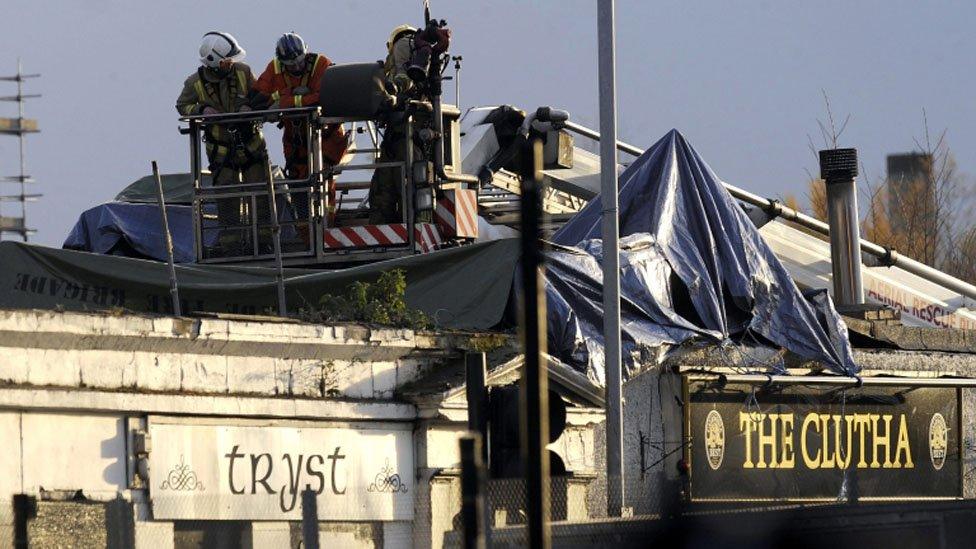
- Published17 April 2019

- Published10 April 2019
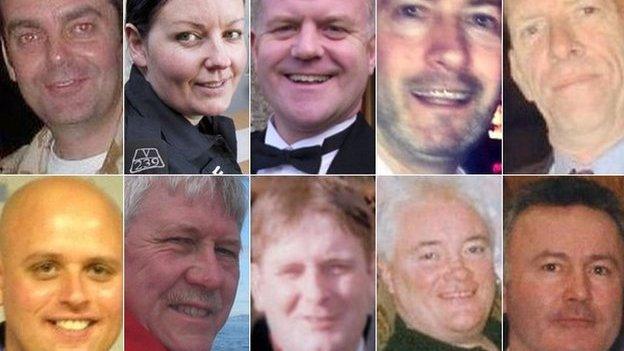
- Published8 April 2019
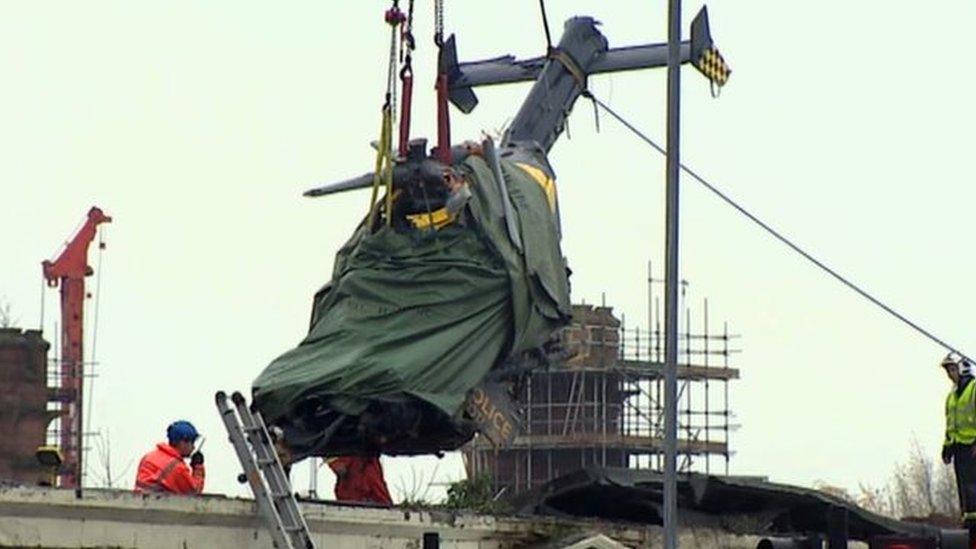
- Published3 April 2019
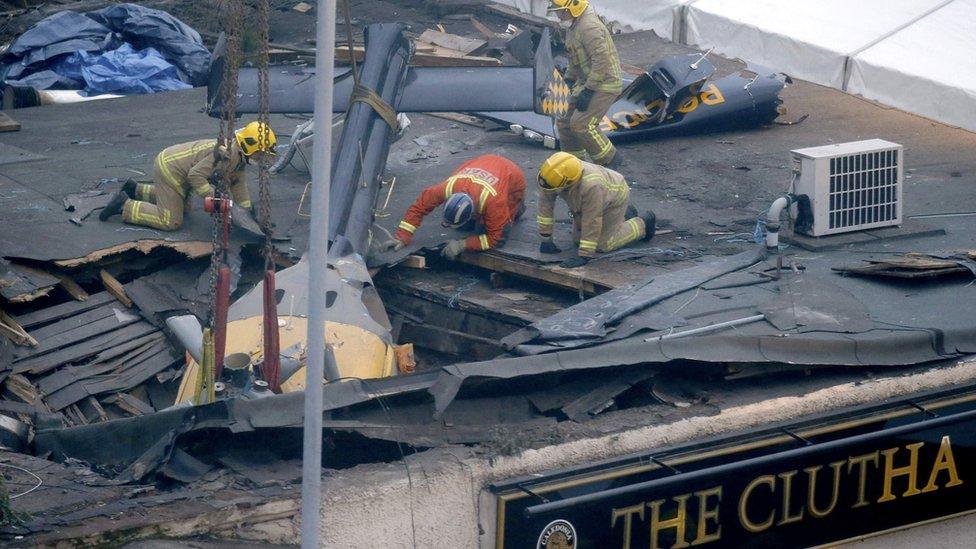
- Published23 April 2019
